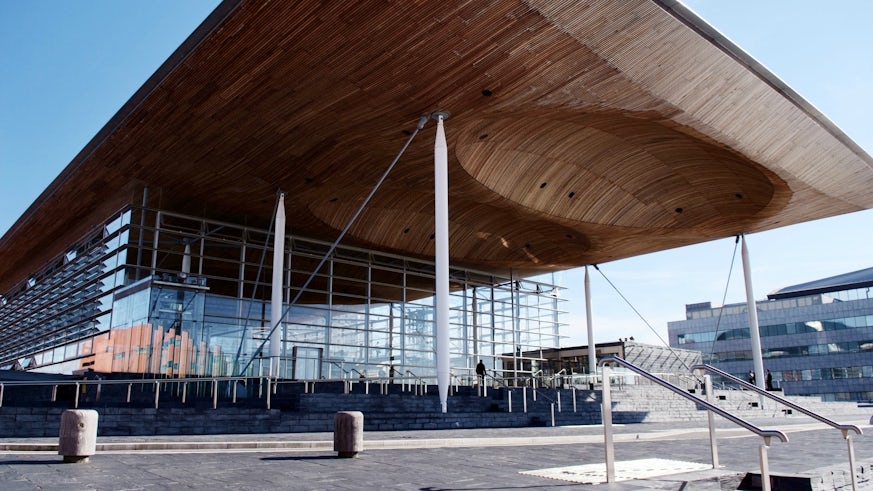Science and the Assembly
7 June 2017

Two of the University’s leading research institutes have showcased their latest research to policy makers, politicians and the public at the National Assembly of Wales as part of the annual Science and the Assembly event.
Led by the Royal Society of Chemistry the event aims to foster closer relations with the National Assembly and Welsh Government and is organised on behalf of, and in cooperation with, the Welsh science and engineering community.
Now it its 13th year, the theme of the event was Antimicrobial resistance and included a day of exhibits, presentations, and keynote speeches to highlight how Wales’ science and technology base is helping to tackle one of the most serious global threats to human health in the 21st century.
World-leading expertise
Dr Maria Mendes De Carvalho, Brekhna Hassan, and colleagues were at the event to showcase the work of the University’s Systems Immunity Research Institute, which draws on the world-leading expertise in infection, immunity and big data from across the University to inform the development of novel diagnostics, therapies and vaccines.

Visitors to the exhibition heard about Burden of Antibiotic Resistance in Neonates from Developing Societies project (BARNARDS), a project funded by the Bill and Melinda Gates Foundation which aims to investigate the effects of antibiotic resistance on neonatal morbidity and mortality in countries such as Africa and South Asia. Led by the University in affiliation with international research partners in Nigeria, Pakistan, Rwanda, Bangladesh, South Africa, Ethiopia and India, the project also aims to identify possible solutions to minimise its impacts, particularly relating to sepsis in newborn babies.
A sustainable 21st century technology
Also taking part in the exhibition were researchers from the University’s Cardiff Catalysis Institute who were on hand to demonstrate the world-leading research taking place in Cardiff to improve the understanding of catalysis, develop new catalytic processes with industry, and promote the use of catalysis as a sustainable 21st century technology.
Among the principal speakers were Dr Lovleen T Joshi from the School of Pharmacy and Professor Eshwar Mahenthiralingam from the School of Biosciences. Professor Peter Knowles, Professor of Theoretical Chemistry chaired an afternoon panel discussion on novel antibiotics and alternatives.
Sponsored by David Rees AM, Chair of the National Assembly’s Cross-Party Group on STEMM, the event is also supported and supported by representatives of each of the political parties, the event is also organised in collaboration with a number of sister organisations. These include The Learned Society of Wales, the Royal Society, the Institute of Physics, the Royal Society of Biology, the Microbiology Society, the Academy of Medical Sciences, the British Pharmacological Society, Life Sciences Network Wales, the Beacon Centre for Excellence in Biorefinery, the Physiological Society, the Geological Society, The Longitude Prize, and the Institution of Civil Engineers.
Share this story
Your gift can help us make ground-breaking developments and tackle major global challenges; from helping to combat cancer to technologies that will mitigate climate change.





